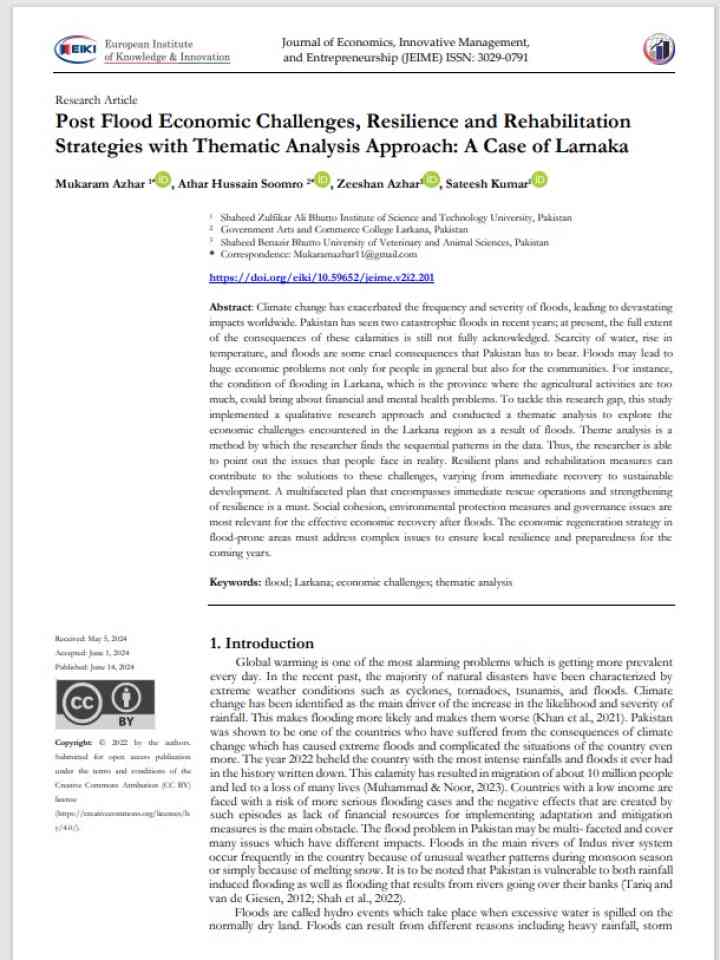Post Flood Economic Challenges; Resilience and Rehabilitation Strategies With Thematic Analysis Approach. A Case of Larkana
The study begins by discussing the severe economic impacts of flooding in Larkana, Pakistan, emphasizing the destruction of agricultural infrastructure, loss of livelihoods, and the need for interdisciplinary approaches to disaster recovery. It highlights the urgency of developing sustainable recovery strategies that not only address immediate needs but also empower affected communities and align with Sustainable Development Goals.
The study explores various resilience and rehabilitation strategies that can be implemented to mitigate the economic challenges faced by flood-affected communities. It underscores the significance of government involvement in coordinating relief efforts, rebuilding infrastructure, and ensuring equitable distribution of resources. The article also stresses the importance of community engagement and feedback in shaping effective recovery interventions.
Utilizing a qualitative research design and thematic analysis, the study gathers insights from community leaders, government officials, and local stakeholders to understand the economic impacts of flooding. The findings reveal gaps in current research and highlight the need for comprehensive strategies that consider long-term effects and local contexts, ultimately aiming to enhance decision-making and policy formulation for better resilience in flood-prone areas.
Explore further
